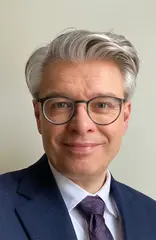The earth's climate is changing rapidly and entire ecosystems are collapsing. Whether and how we should respond to climate change and species extinction together is highly controversial politically. However, these ecological conflicts are not being fought out among political parties alone in election campaigns and parliamentary debates. In particular, the global social movement "Fridays for Future" of pupils regularly demonstrates for better climate protection and is now recognized by international governmental organizations such as the United Nations as representing the "young generation." Other political activists see themselves as representing the "last generation," while counterparts style themselves as representing a threatened majority society of "neck steak eaters". How are such claims to representation enforced? When are they recognized or rejected? And what conflict dynamics arise from them? These are the questions that the new research group "Ecological Conflicts" led by Dr Vincent August (HU Berlin) and Professor André Brodocz (University of Erfurt) is investigating.
"We suspect that contours of the coming society are being negotiated in ecological conflicts. The institutional order is being readjusted, social groups are positioning themselves, and in this process very fundamental conflicts are emerging, each with its own dynamics," explains Vincent August. "We want to investigate whether these disputes about political representation reveal new patterns of how we will conduct our political conflicts in the future - even beyond the challenges of climate change," adds André Brodocz. With this goal in mind, the project compares three concrete contemporary conflict events: the disputes over the 'climate ruling' of the German Constitutional Court, the phase-out of lignite-fired power generation with the so-called Coal Commission, and the conflicts over the upcoming world climate conferences.

